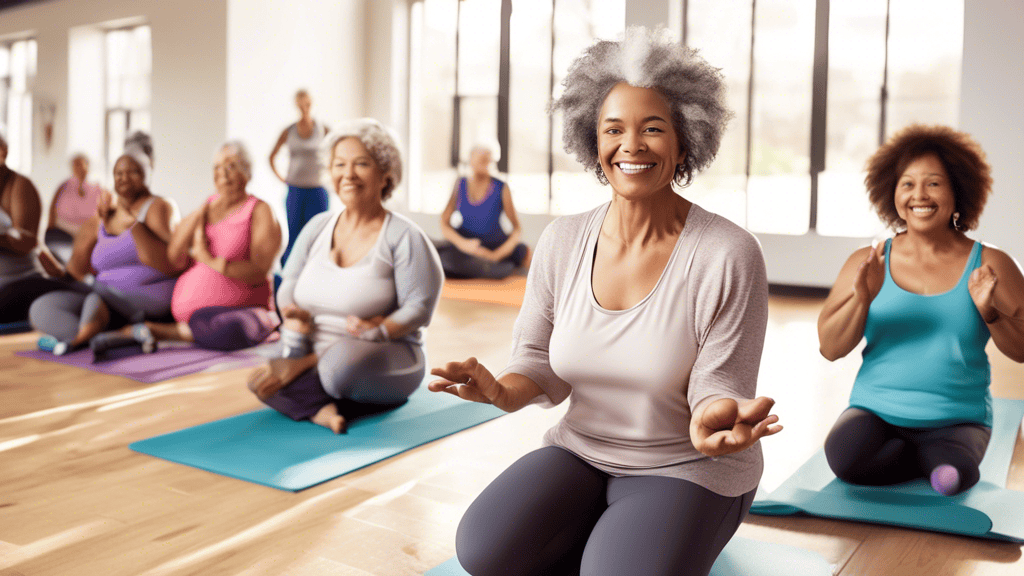The Benefits of Cross-Training for Mature Women
The Benefits of Cross-Training for Mature Women
Key Takeaways
Cross-training offers numerous benefits for mature women, including improved physical health, enhanced mental well-being, and social engagement. It helps in maintaining flexibility, strength, and cardiovascular health, while also reducing the risk of chronic diseases and injuries.
Introduction
As we age, it becomes increasingly important to engage in a variety of physical activities to maintain overall health and wellness. Cross-training, which involves incorporating different types of exercises into a fitness regimen, can offer a multitude of benefits specifically for mature women. This approach not only helps in achieving a well-rounded fitness level but also addresses age-related concerns such as bone density loss, muscle deterioration, and mobility issues. Let’s delve deeper into the myriad advantages that cross-training can offer to mature women.
Improved Physical Health
Enhanced Flexibility and Mobility
One of the significant benefits of cross-training is the improvement in flexibility and mobility. Activities like yoga and Pilates focus on stretching and lengthening the muscles, which can increase joint range of motion. For mature women, maintaining flexibility is crucial to reduce the risk of falls and enhance overall functional movements required in daily life.
Increased Muscle Strength
As women age, muscle mass naturally decreases, which can lead to weakness and a higher risk of injuries. Strength training exercises, such as weight lifting and resistance band workouts, are integral components of cross-training that help in building muscle strength. By incorporating these exercises, mature women can maintain their muscle mass, improve posture, and support overall body mechanics.
Cardiovascular Health
Cardiovascular exercises such as swimming, cycling, and brisk walking are essential for maintaining heart health. These activities help in reducing the risk of heart disease, lowering blood pressure, and improving blood circulation. For mature women, regular cardiovascular exercise can significantly enhance stamina and energy levels, making everyday activities easier to manage.
Bone Density Maintenance
Osteoporosis is a common concern for mature women, characterized by a decrease in bone density that can lead to fractures. Weight-bearing exercises like dancing, hiking, and strength training can help in maintaining bone density, thus reducing the risk of osteoporosis. Cross-training that includes these types of exercises ensures a well-rounded approach to bone health.
Mental Well-Being
Reduced Stress and Anxiety
Engaging in a variety of physical activities can significantly reduce stress and anxiety levels. Activities such as yoga and Tai Chi promote mindfulness and relaxation, while aerobic exercises increase the production of endorphins, the body’s natural mood elevators. For mature women, this combination can lead to an overall improvement in mental health and resilience.
Enhanced Cognitive Function
Regular physical activity has been shown to improve cognitive functions such as memory, attention, and problem-solving skills. By participating in different types of exercises, mature women can stimulate various parts of the brain, which can help in delaying the onset of cognitive decline. This is especially beneficial in maintaining mental sharpness and independence in older age.
Improved Sleep Quality
Sleep disturbances are common as women age, often due to hormonal changes and lifestyle factors. Cross-training can improve sleep quality by regulating circadian rhythms and reducing symptoms of insomnia. Exercises like swimming and walking can be particularly beneficial in promoting restful sleep, thereby enhancing overall quality of life.
Social Engagement
Building a Supportive Community
Participating in group activities such as fitness classes, sports teams, or walking clubs can foster social connections. For mature women, these social interactions are invaluable for emotional support and motivation. A sense of community can make the exercise experience more enjoyable and sustainable, encouraging long-term commitment to physical activity.
Motivation and Accountability
Having a workout buddy or being part of a fitness group can provide the motivation needed to stay consistent with a cross-training routine. Accountability partners can help in setting and achieving fitness goals, making the process more rewarding. For mature women, this can be particularly beneficial in maintaining a disciplined approach to health and fitness.
Preventing Injuries
Balanced Muscle Development
Cross-training ensures that various muscle groups are targeted, promoting balanced muscle development. This approach reduces the risk of overuse injuries that can occur from repetitive movements in single-type exercises. For mature women, balanced muscle development is key to maintaining a stable and strong musculoskeletal system.
Improved Coordination and Balance
Exercises that focus on coordination and balance, such as dancing and Tai Chi, are essential components of cross-training. These activities help in improving proprioception, or the body’s ability to sense its position in space, which is critical for preventing falls. Enhanced coordination and balance can lead to greater confidence in performing daily activities.
Conclusion
Cross-training offers a holistic approach to fitness that can greatly benefit mature women. By incorporating a variety of exercises, this method helps in improving physical health, enhancing mental well-being, fostering social connections, and preventing injuries. The diverse nature of cross-training makes it a sustainable and enjoyable way to maintain overall wellness. For mature women looking to lead a healthier and more fulfilling life, cross-training presents a compelling and effective option.
